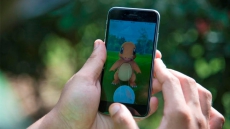In hope for countries like India where clean drinking water is a big issue, a team of researchers including an Indian-origin engineer has found a way to use graphene oxide sheets to transform dirty water into drinking water which could be a global game-changer.
"We hope that for countries where there is ample sunlight such as India, you'll be able to take some dirty water, evaporate it using our material, and collect fresh water," said Srikanth Singamaneni from Washington University in St. Louis.
The novel approach combines bacteria-produced cellulose and graphene oxide to form a bi-layered biofoam.
"The process is extremely simple," Singamaneni said. "The beauty is that the nanoscale cellulose fiber network produced by bacteria has excellent ability move the water from the bulk to the evaporative surface while minimizing the heat coming down, and the entire thing is produced in one shot," he added.
"The design of the material is novel here," the Indian-origin researcher added.
"You have a bi-layered structure with light-absorbing graphene oxide filled nanocellulose at the top and pristine nanocellulose at the bottom. When you suspend this entire thing on water, the water is actually able to reach the top surface where evaporation happens," he explained.
Light radiates on top of it, and it converts into heat because of the graphene oxide -- but the heat dissipation to the bulk water underneath is minimised by the pristine nanocellulose layer.
"You don't want to waste the heat; you want to confine the heat to the top layer where the evaporation is actually happening," Singamaneni said.
The cellulose at the bottom of the bi-layered biofoam acts as a sponge, drawing water up to the graphene oxide where rapid evaporation occurs.
The resulting fresh water can easily be collected from the top of the sheet.




